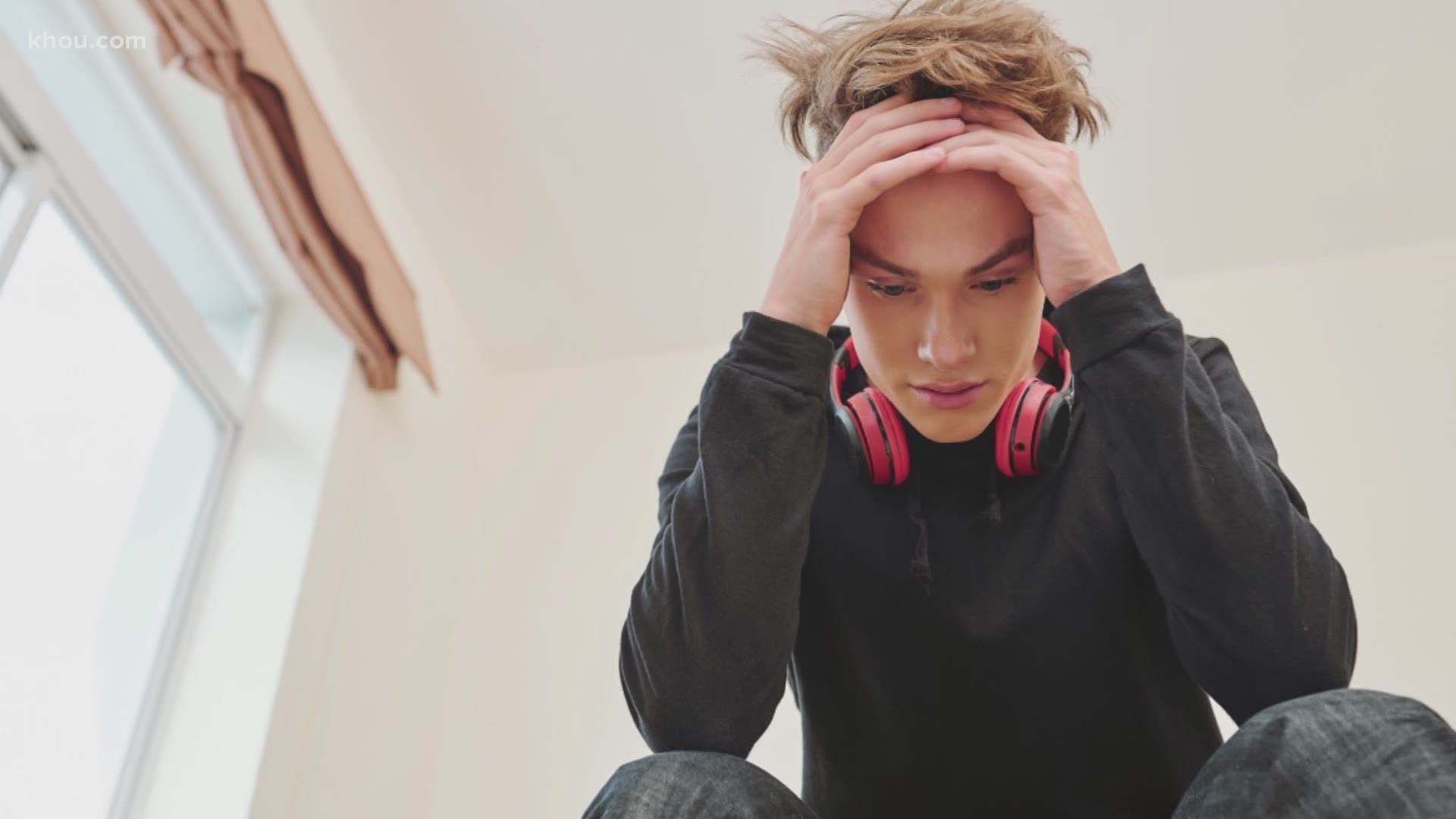HOUSTON — A new study from the Centers for Disease Control shows a startling number of Americans are dealing with mental health problems related to the pandemic.
The CDC surveyed 9,896 adults and found that 42% reported a mental health problem; 26% reported anxiety in 2020 compared to 8% in 2019; 24% of those surveyed reported depression in 2020 compared to 7% in 2019. And thoughts of suicide more than doubled, 11% in 2020 compared to 4% in 2019.
“Those numbers are extremely high,” said KHOU mental health and wellness expert Bill Prasad. “It paints a picture of a country where people are in despair. People are really struggling.”
Prasad says since March, his caseload has nearly doubled.
“The reactions when they have anxiety are worse; depression, worse; post-traumatic stress disorder, worse,” he said.
That rings true for Jennifer Petty, who was diagnosed with a panic disorder 15 years ago. At the time, her psychotherapists tied her disorder to PTSD from the trauma that happened when she was younger.
Petty worked hard to get her anxiety under control and learned coping mechanisms to help. Since then, she got married, had three children, works as a project manager for a construction company and is even the president of the PTA. She was doing well, but then COVID-19 happened and her whole world changed.
“I spiraled,” Petty said. “I went into my anxiety hole and I didn’t know the right decisions to make. And I was silently suffering, but not so much, because my kids could tell something was going on. My husband knew something was going on.”
Prasad said isolation is a major factor when it comes to mental health problems related to the pandemic but so is the unknown as many people use organization and planning to cope with these disorders.
“They get very anxious if they don’t know what’s coming. With the pandemic, you don’t know what’s coming. You don’t know how long it’s going to go on,” Prasad said.
Petty has been trying to find new ways to cope with her anxiety. Two things have helped her: confiding in a close friend and accepting that this new way of life could last a while. Prasad said the last part is crucial because counting on an end date for the pandemic can be devastating.
“You’ve got to come up with a plan for the long run,” Prasad said. “You’ve got to acknowledge that things might get worse but eventually we will get out of this.”
Other tips: control what you can like diet and exercise, schedule Zoom or Facetime calls with friends and family and get professional help if you need it.
There are several free resources listed here.
Those struggling should try to remember they are not alone in feeling alone, anxious or depressed. Help is out there and we are all in this together.
“We are facing something that we have never face before and it’s going to be difficult,” Prasad said.

